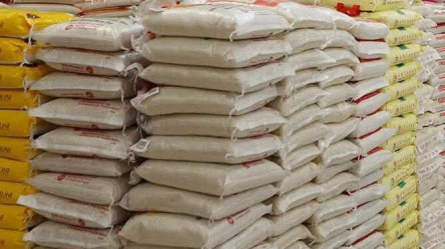The Liberian government, under the leadership of President Joseph Nyuma Boakai, Sr., has initiated a decisive move to alleviate the economic burden on its citizens by enforcing price reductions on essential food commodities, primarily rice and flour. This action follows recommendations from a Presidential Ad-Hoc Committee tasked with investigating price discrepancies in the market. The President’s directive mandates a decrease in the wholesale price of a 100-lb bag of flour from US$39.00 to US$35.00 and a reduction in the wholesale price of a 25kg bag of rice from US$16.75 to US$14.00. This intervention is a cornerstone of President Boakai’s commitment to ensuring food security and affordability for all Liberians, reflecting his administration’s focus on economic relief for households. The government has underscored its intention to collaborate with producers and importers to establish sustainable trade practices that guarantee a consistent supply of these crucial staples.
To ensure the effective implementation of these price reductions, President Boakai has directed the Ministry of Commerce and Industry, led by Minister Magdalene Dagoseh, to spearhead a nationwide inspection campaign. The Ministry’s inspectorate, along with relevant stakeholders, has been tasked with rigorously enforcing the new prices across the country. Any individual or business found to be non-compliant and engaging in price gouging will face legal repercussions. This decisive action underscores the government’s resolve to maintain price stability and protect consumers from unfair market practices. The President’s directive emphasizes the importance of transparency and accountability in the market, sending a strong message to traders and businesses about the seriousness of this economic intervention.
Minister Dagoseh has swiftly responded to the President’s mandate by launching a comprehensive nationwide inspection initiative. Inspection teams from the Ministry are actively visiting markets, retail shops, and wholesale suppliers throughout the country to verify compliance with the new pricing structure. The Minister has publicly affirmed the Ministry’s commitment to protecting consumers from exploitation and ensuring that basic goods are accessible and affordable for every Liberian household. This proactive approach demonstrates the government’s dedication to translating the price reductions into tangible benefits for the citizens. The Minister’s strong warning of “serious consequences” for those found overcharging reinforces the government’s commitment to enforcing the new regulations.
The enforcement drive initiated by the Ministry of Commerce and Industry represents a critical juncture in this economic intervention. The success of this initiative hinges on the effective implementation of the price reductions at the retail level. While the government has mandated changes at the wholesale level, ensuring that these reductions are reflected in the prices consumers actually pay is paramount. The Ministry’s inspection campaign, therefore, plays a vital role in bridging the gap between wholesale and retail pricing, ensuring that the intended beneficiaries, the Liberian people, experience the full impact of the government’s intervention. The effectiveness of the Ministry’s efforts will be a key determinant of the overall success of this policy.
Public reaction to the announced price reductions has been varied. While a segment of the population has welcomed the move with optimism, expressing relief at the prospect of lower food costs, others remain skeptical. This skepticism stems from concerns about whether the reduced wholesale prices will truly translate into lower retail prices or whether they will be absorbed along the supply chain, leaving consumers with little to no benefit. This cautious optimism reflects a degree of public distrust, perhaps stemming from past experiences where announced price reductions have not materialized at the consumer level. The government’s ability to effectively enforce the new prices and demonstrate tangible benefits for consumers will be crucial in building public trust and confidence in the initiative.
The government’s commitment to continuous engagement with stakeholders is a positive indicator of its long-term vision for price stabilization and food security. While the immediate focus is on enforcing the current price reductions, the government has indicated that it will continue to monitor the situation and explore further opportunities for reductions. This ongoing dialogue with producers, importers, and other actors within the supply chain demonstrates a proactive and adaptable approach to addressing the complex challenges of food affordability. The government’s commitment to reviewing cost drivers and exploring additional avenues for price relief suggests a sustained effort to alleviate the economic strain on Liberian households and ensure long-term food security. The ultimate success of this intervention, however, will depend on the government’s ability to translate policy into tangible results for the Liberian people and build public trust in its ability to deliver on its promises.














